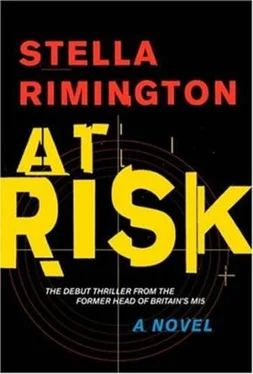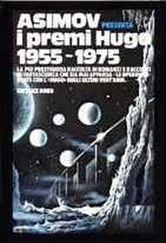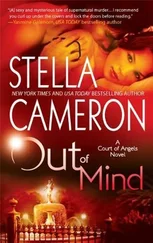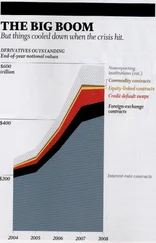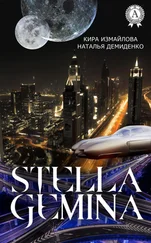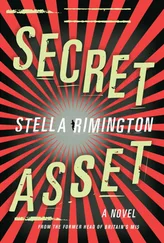“Who said that?” asked Liz.
“Tacitus. About the Roman Empire.”
She turned to him. “I assume you were up all night, following everything as it happened?”
“I was in COBRA when your call came through saying that you were on your way to West Ford by helicopter. Five minutes later the police were reporting an explosion with at least a dozen feared injured or dead, and then another report came in almost immediately of some sort of SAS firefight. Downing Street was jumping up and down by this time, as you can imagine, but luckily by the time I got there I’d been able to extract some hard facts from Jim Dunstan-including the fact that one of my officers was down.” He smiled drily. “The Prime Minister was naturally extremely concerned. He informed me that you were in his prayers.”
“That must be what pulled me through. But tell me; I only saw scraps of what happened. Was there time to evacuate the Delves family? One of the police officers in my helicopter was trying to ring them to tell them to get the hell out, but their phone was engaged and she couldn’t get through.”
Wetherby nodded. “Evacuating the area was Dunstan’s main worry, especially as most of the local force was deployed a dozen miles away guarding this place here. In the event he managed to get a warning to Delves’ security people, and they evacuated the pub and got the family clear.”
“Where did everyone go?”
“Church hall at the other end of the village, I gather.”
“And meanwhile we all land on the cricket pitch. Enter Jean D’Aubigny. I can remember her walking towards me. What happened? Why was she walking away from the target?”
“We don’t know. It looks as though she must have changed her mind. She was carrying the bomb and Mansoor had a transmitter. We think he must have detonated it. Explosion followed by total chaos, as I understand it. There was a big helicopter search for Mansoor, somebody reported heat traces around the pavilion, and one of the SAS teams moved up to investigate.” He smiled wryly. “A process of which, I’m informed, you were quite a close observer.”
“I’ll have plenty to say about that in my report,” murmured Liz. “Never fear.”
“I look forward to it.”
The cookhouse was huge-a shining ocean of vending machines and wipe-clean tabletops, thousands of square metres in area. Mid-morning, the place had little traffic-a dozen individuals, perhaps, mostly dressed for sport-and the two of them were the only customers at the long tray-counter. Liz secured herself coffee, orange juice and toast. Wetherby contented himself with coffee.
“You asked me if I knew who Faraj Mansoor really was,” he said, stirring pensively.
“That’s right.”
“The answer is yes. Geoffrey Fane told me early this morning. I came up here on a helicopter with him.”
“So where’s Fane now?”
“Debriefing Mackay on the flight home, I’d imagine.”
Liz stared out disbelievingly over the vast, empty canteen. “Bastards. Bastards! They deliberately kept us in the dark. Watched us struggle. Watched people die.”
“It does rather look that way,” said Wetherby. “How did you find out?”
“Mackay’s behaviour last night. When Mansoor came out of the cricket pavilion with his hands up-and we’d been hunting the man night and day for a week, remember-Mackay barely glanced at him. In fact he kept his head turned away as if he didn’t want to be recognised.”
“Go on.”
“They knew each other. It was the only possible explanation.”
Wetherby peered incuriously at a Coca-Cola machine. “Faraj Mansoor was MI6’s man, as his father had been before him. By all accounts he was a first-class agent. Very brave and steady.”
“And Mackay ran him?”
“He inherited him. Mackay arrived in Islamabad at about the time of the US intervention in Afghanistan, and reading between the lines, he pushed Mansoor a bit too hard. For whatever reason, Mansoor asked Mackay to back off. Said that he was being watched very closely, and insisted that for the time being they cease all contact.”
“So Mackay backed off?”
“He didn’t have much choice. Mansoor was Six’s best asset in theatre. He had to be kept happy.”
“And then the USAF shot up his family.”
“That’s right. A tragic accident or lethal incompetence, depending on your reading of the facts, but Mansoor reads it as revenge. As punishment for breaking off contact with Mackay. So-unsurprisingly, perhaps-he turns, and throws in his lot with the jihadis. His father and fiancée are dead, and some kind of retaliatory gesture is expected of him. It’s a matter of honour, as much as anything else.”
“An eye for an eye.”
“All that, yes.”
“Enter D’Aubigny.”
“Enter D’Aubigny. Somewhere in Paris, at much the same time, she’s telling her controllers that she has privileged information: she knows where the Marwell commander’s private residence is. Messages cross the world and the ITS planners realise that several symbolic birds can be killed with one stone. It’s just too good a chance to miss.”
Liz shook her head. “From the way Mansoor behaved at the end, I’d say that, for him, it was almost entirely personal. When he saw that the task of eliminating Delves’ family was no longer possible, he simply gave up. He was armed, and could easily have taken out at least one of those SAS guys, but by that stage…” She shrugged. “I’d say he saw no purpose in causing further loss of life. He probably didn’t even particularly hate the West.”
Wetherby shrugged. “You may well be right.”
Liz frowned. “Tell me something. If our information about Pakistan was coming to us via Six, and they were suppressing information about Mansoor, how did you find out that it was his family who were killed by the USAF?”
Wetherby regarded her with an oblique smile. “Six’s principal liaison in Pakistan, as you know, is with Inter-Services Intelligence, who answer to the Defence Ministry. Six spend rather less time talking to the Intelligence Bureau, who answer to the Interior Ministry, and whose regard for ISI is, shall we say, a little jaundiced.”
“And you’ve got chums in the IB?” asked Liz.
“I maintain one or two friendships, yes. People to whom I can make a direct approach, if need be. I fed them the name Faraj Mansoor and their data bank threw up a suspected terrorist whose father and fiancée had been killed at Daranj. What they didn’t know, and I didn’t mention, was that Mansoor had been a British agent.”
“So why- why -didn’t Fane and Mackay tell us all this? I mean… we would have understood, wouldn’t we? We would have kept quiet?”
“It’s an information-sharing issue,” said Wetherby. “As Fane sees it, they have to tell everyone-the Americans included-or nobody. And they very quickly decide it has to be nobody.”
“Why?”
“Imagine if Mansoor succeeds. Succeeds in blowing up a London nightclub, say, or doing serious damage to some major defence or business establishment, and perhaps killing a lot of people, and then the world discovers that he’s a former MI6 agent. The damage would be incalculable.”
“And if the establishment and the dead happened to be American…”
“Exactly. It would be off the scale. Much better to keep stumm, get us to find him, and then have him eliminated before he has a chance to speak.”
Liz shook her head. “I’m sorry. I take the political point but I still consider what happened last night indefensible. It was murder, plain and simple. There was no grenade. The man was standing there with his hands in the air.”
“Liz, I’m afraid that’s academic. Mansoor and D’Aubigny killed several innocent people, and now they’re dead themselves. Vis-à-vis the SAS action, there will be an inquiry, but you can guess the conclusion.”
Читать дальше
